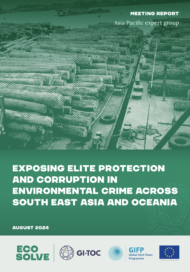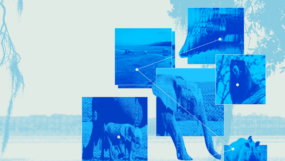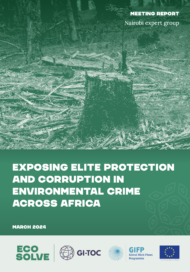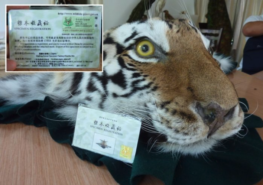Posted on 29 Aug 2024
A group of investigative journalists, environmental defenders, and anti-corruption activists from South East Asia and Oceania met in Bangkok, Thailand, in February 2024 to discuss the role of corruption and elite protection in environmental crime, and the challenges and opportunities for investigative reporting.
The meeting was the second of three regional consultations organized as part of the ECO-SOLVE project, a three-year global programme run by the Global Initiative Against Transnational Organized Crime (GI-TOC) and funded by the European Union, which aims to monitor and disrupt illicit environmental flows while strengthening community resilience.
The discussion, which was held under the Chatham House rule, explored how the ecosystem of corruption has evolved over the past decade and how this has affected the work of civil society and environmental practitioners in the two regions. From this rich discussion emerged a strategy – a map for how to increase the chances of corruption exposure coming to light and having an impact.




